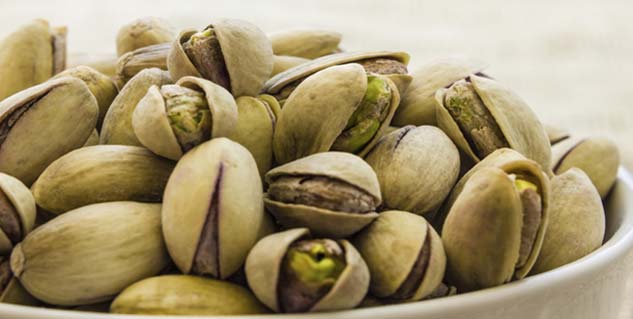Why ‘Low Fat’ Isn’t as Important as You Think
Why ‘Low Fat’ Isn’t as Important as You Think
Although it is important to not overconsume fat, the body needs fat and cholesterol. Most importantly, the body can carry out many of its critical processes when ditching the concept of ‘low fat’ and welcoming dietary and healthy fat into the diet.

Unsaturated Fat
Unlike saturated fats, unsaturated fats are liquid at room temperature, mostly found in plant oils, and may improve cholesterol. Monounsaturated fats (MUFAs) come from avocado, nuts and nut betters, and vegetable oils like canola, olive, and other nut oils. They also have the potential to decrease low-density lipoprotein (LDL) or "bad" cholesterol levels while maintaining high-density lipoprotein (HDL) or "good" cholesterol levels.
Polyunsaturated fats (PUFAs) are mainly in vegetable oils like sunflower, sesame, and corn oils and the primary fat found in seafood. Replacing polyunsaturated fat in place of saturated fat may lower LDL cholesterol. Omega-3 fatty acids and omega-6 fatty acids are the two types of polyunsaturated fats. Omega-3 fatty acids and found in the seed oils, chia seeds, and the fatty fish and shell fish. Omega-6 fatty acids are mostly found in liquid vegetable oils.
What Fat Does for Your Body
Fat, also identified as dietary lipids and adipose tissue in the body, provides life-sustaining functions. Cholesterol, either produced by the body or obtained through the consumption of animal products, also plays an important role in these functions. Carbohydrates are considered the main energy source for your body, however fat can act as a backup when carbohydrates are unavailable and in periods of starvation through the utilization of triglycerides.
Triglycerides are a lipid found in the blood and accumulate when the body does not convert the food calories into needed energy. Fat can be found in cell membranes and surrounds and protects vital organs, acting as an insulator for body protection, maintenance of body temperature, and cell membrane structure.
Fat-soluble vitamins A, D, E, and K rely and depend on fat, while vitamin D relying on cholesterol as well. Without the consumption, the fat-soluble vitamins would not be effectively absorbed and transported in the body and the disruption could contribute to health consequences. For example, a deficiency in vitamin A and K could disrupt vision and blood clotting, respectively. Fat also has a meaningful role in hormone-production. Without fat and cholesterol, vital sex hormones can be compromised and interfere with healthy and proper growth.
The Bottom Line
Ditching the concept of ‘low fat' can allow the body to achieve and maximize the benefits noted. Replacing saturated and trans fats with a higher intake of unsaturated fats, MUFAs and PUFAs, can help improve and maintain cholesterol and triglyceride levels. General recommended cholesterol levels include total cholesterol less than 200 milligram per deciliter (mg/dL), LDL cholesterol less than 100 mg/dL, HDL levels greater than 40 mg/dL, and triglycerides less than 150 mg/dL.
The adoption of regular physical activity and a balanced diet filled with whole grains, fruits, vegetables, MUFAs and PUFAs, and lean meats can decrease the risk of heart disease and contribute to a healthier lifestyle.
References:
Fat. Iowa State University Extension and Outreach. Available at: http://www.extension.iastate.edu/humansciences/fat
Types of Fats. WedMD. Available at: http://www.webmd.com/diet/guide/types-of-fats-topic-overview?page=2
-
How to Lose Weight Without Feeling Hungry
Losing weight is commonly associated with calorie-intake reduction,
-
How to Lose Weight in a Safe and Healthy way
Fat can be harmful to your body in many ways. The fat that is usually
-
Diets To Have Weight Loss
If people want to burn that excess fat, weight loss diets that cut the
-
Why Diaphragmatic Breathing 24/7 Is Crucial To Fight Obesity
Recent medical discoveries suggest that obesity and insulin resista
-
Doctors Best Weight Loss Makes Losing Weight Easy
Are you tired of counting calories, adding up points and measuring
-
I Can I Cant
One common question I receive is, ?What do you do for maintenance?? It
- DON'T MISS
- What is in a Weight Loss Diet Pill?
- Stomach Fat Reduction
- Gastric Bypass Myth All Patients Stretch Their Stomachs And Regain Weight
- Pills to Lose Weight for Women
- Tips For Choosing Effective Online Weight Loss Plans
- Why More American Are Switching To A Gluten Free Diet Weight Loss
- Top Weight Loss Tricks - Requirements For Fast Weight Loss Success
- How To Cheat & Still Lose Weight
- Website For Fast Weight Loss Tips
- Quick Weight Loss - Some Tips That You May Not Know




